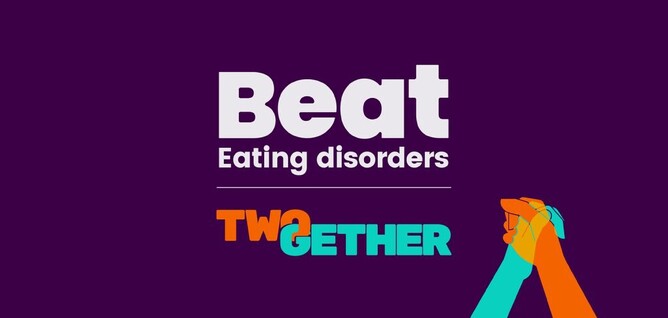Eating Disorders Awareness Week 2024
Shining a Light on Avoidant/Restrictive Food Intake Disorder (ARFID)
Eating Disorders Awareness Week is upon us, and this year, The focus is on shedding light on a condition that often goes unnoticed: Avoidant/Restrictive Food Intake Disorder (ARFID).
While many are familiar with anorexia nervosa and bulimia nervosa, ARFID remains relatively less known despite its significant impact on individuals and families.
ARFID is not simply picky eating or fussiness. It is a complex eating disorder characterised by a persistent refusal to eat certain foods or a reluctance to eat certain types of food due to sensory issues, fear of choking or vomiting, lack of interest in eating, or other factors.
This disorder can lead to significant nutritional deficiencies, weight loss or failure to gain weight, and impairment in social functioning.
In recent years, there has been a notable increase in calls to helplines for support with ARFID, indicating a growing recognition of the disorder. However, there is still much work to be done to raise awareness and understanding of ARFID within the general population and among healthcare professionals.
To better understand ARFID and its impact, BEAT have gathered insights from individuals affected by the disorder. Their stories highlight the challenges they face and emphasize the importance of recognising ARFID as a legitimate and serious condition.
During this Eating Disorders Awareness Week, we encourage everyone to learn more about ARFID and join us in our efforts to spread awareness and support those affected by the disorder. At TMH we believe is parents and carers are aware of this, and ways to help, this can help avoid ARFID or shared symptoms of ARFID in their children too.
Here are some key points to consider:
What does ARFID look like in children and teens?
· Avoidance or restriction of certain foods or food groups
· Fear or anxiety related to eating specific foods
· Limited variety in diet
· Difficulty eating in social settings
· Physical symptoms such as weight loss, nutritional deficiencies, or gastrointestinal issues.
Why does ARFID happen?
· Sensory sensitivities or aversions to certain textures, tastes, or smells
· Fear of choking, vomiting, or other negative consequences associated with eating
· Traumatic experiences related to food, such as choking incidents or food allergies
· Developmental factors, including autism spectrum disorder or other neurodevelopmental conditions
Ways of helping individuals with ARFID:
· Foster a supportive and non-judgmental environment: Create a safe space where individuals feel understood and accepted, free from criticism or pressure regarding their eating habits. Example: Instead of forcing them to try new foods, respect their boundaries and offer encouragement and support as they explore new foods at their own pace.
· Encourage exposure to new foods at their own pace: Gently and discreetly introduce new foods, respecting their comfort levels and avoiding overwhelming them with unfamiliar foods. Example: Offer small portions of new foods alongside familiar favourites, allowing them to explore and experiment without feeling pressured.
· Focus on positive reinforcement rather than criticism or pressure: Celebrate small victories and efforts towards expanding their food repertoire, avoiding negative comments or coercion. Example: Praise them for trying a new food, regardless of whether they like it or not, and avoid making negative remarks about their food choices.
· Seek professional help from healthcare providers experienced in treating eating disorders: Consult with mental health professionals or eating disorder specialists who can provide tailored treatment and support. Example: Reach out to local mental health services or eating disorder teams for guidance and referrals to qualified therapists or specialists in ARFID treatment.
· Model healthy eating behaviours and attitudes towards food and body image: Lead by example by demonstrating balanced eating habits, fostering a positive relationship with food, and promoting body acceptance. Example: Show enjoyment and variety in your own meals, avoid making negative comments about your body or food choices, and encourage open conversations about nutrition and self-care.
By implementing these strategies and approaches, we can create a supportive and empowering environment for individuals struggling with ARFID, helping them navigate their journey towards healing and recovery with compassion and understanding.
It's important to remember that individuals with ARFID are not being "fussy" or "difficult." They are struggling with a serious and often misunderstood condition that requires empathy, understanding, and support.
You can find other or more advice and tips from BEAT Themselves via: https://edaw.beateatingdisorders.org.uk/how-to-help-someone-with-arfid/
This Eating Disorders Awareness Week, let's come together to raise awareness of ARFID and show our support for those affected. By sharing stories, spreading information, and advocating for greater recognition and resources, we can make a difference in the lives of individuals living with ARFID. Together, #WeAreNotBeingFussy.
Search our blogs, this isn’t the only eating order disorder related post we’ve done. And if you still have questions or concerns, contact us directly.

